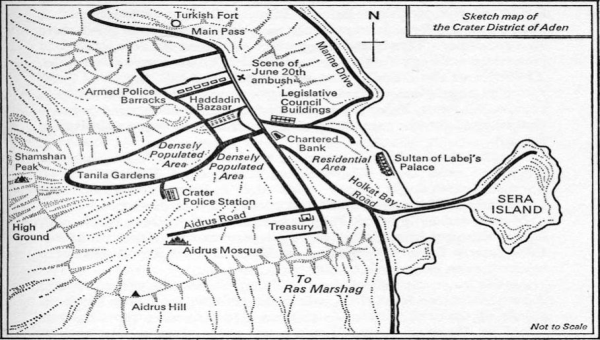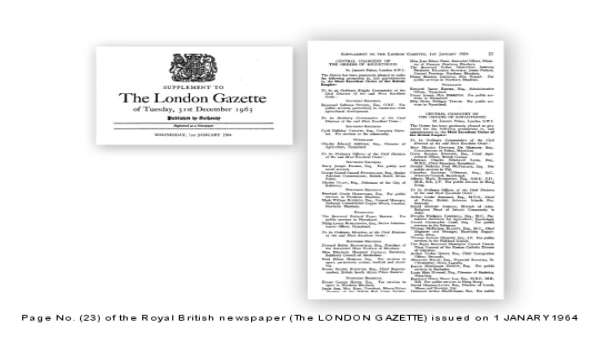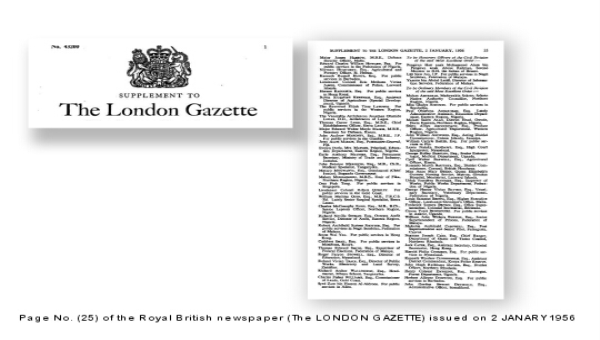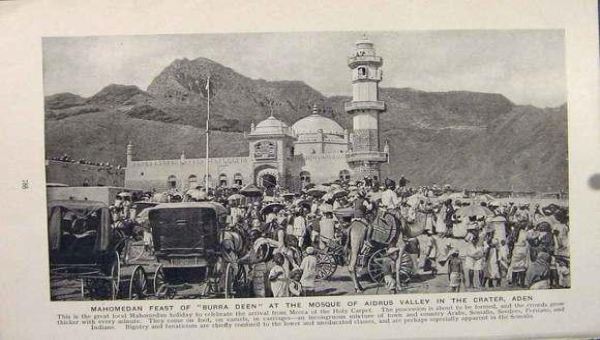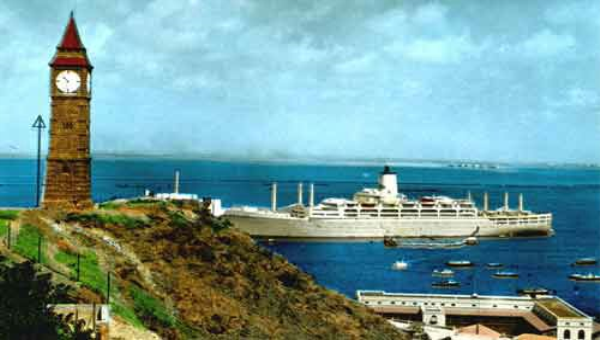02 ديسمبر, 2016 08:45:41 ص

Sheikh Abu Bakr Bin Abdullah Al Aidarous fought to defend Aden(1513) against the Portuguese military campaigns to invade Aden using his influence, charisma and strong ties with the house of Taher.
Historic manuscripts including Tareekh Al Shahr by A1 Tayeb Al Faqih and History of the Isles of Yemen by Hamza Luqman, Highlights on the Maritime History of Yemen by Hassan Shebab and History of Hadramout were a testament on the strong relationship between Sheikh Abu Bakr Bin Abdullah Al Aidarous and Sultan Amer Bin Abdul Wahab and that the latter was a faithful follower of Al Aidarous.
This strong relationship served to strengthen the fighters resisting the Portuguese invasion which was ultimately foiled in 1513 AD. However the Portuguese continued plotting to take over Aden using subterfuge and deceit that culminated in 1517 AD.
Sheikh Abu Bakr Al Aidarous loved Aden and strove to build an Islamic utopia that was embodied in the Al Aidarous mosque which is a symbol of the city. He and Aden became synonym and he became the chaperon and defender of the city that revered him for his devoutness, piousness and vast knowledge, sagaciousness and jurisprudence. His legacy of compassion,
ultraism, modesty, knowledge and the services of the people of Aden and Islam is survived by the House of Al Aidarous and this grand and great grandchildren to this day to maintain the status of the descendants of Prophet Mohamed the Messenger of Allah through the Nineteenth Century and till this day.
The house of Al Aidarous Place the First Plan for Aden

On Iumada Al Akhar 987 AH - 1579 AD the house of Al Aidarous documented the oldest manuscript map of the city of Aden which was drawn by Sheikh Omar Bin Abdullah Bin Alawi Bin Al Qotb Sheikh Abdullah Bin Al Aidarous.
The National Role Played by the House of Al Aidarous (from 1838 until 1967 AD).
The fight to defend Aden continued after the Imam Abu Bakr Al Aidarous departed until the British colonialism on 1839 AD when Britain found the long awaited pretext to invade Aden on 1837 AD when its ship Daria Dawlat carrying Muslim Pilgrims who were looted and harassed beached on the shores of Sirah . Sheikh Alawi Bin Zain Al Aidarous rushed the relief but this incident was quickly followed by military retaliation by Britain against the Port of Aden. This incident was chronicled and the subject of a PhD and a book by Prof. Sheikh Sultan Al Qasim the Ruler of Sharjah. On January 73_, 1893, British warship Kut anchored in the waters of Aden and received an envoy representing the people of Aden headed by Sheikh Alawi Bin Zain Al Aidarous and his son Sheikh Zain Bin Alawi AI Aidarous who met with Captain Hense to negotiate the interest of the city. The book The International Fight for Aden and the Egyptian Role, describes the instrumental role played by Sheikh Zain to negotiate an end to the naval siege of Aden and defuse the standoff.
The House of Al Aidarous continued to play a pivotal role and shape the history of Aden by being at the forefront of social, legal, national and political milestone events and laying the first foundations for the judicial, educational and health institutions of Aden and other parts of the Yemen and the Arabian Peninsula.

The national role of the House of Al Aidarous continued after the end of the British rule of Aden and the sheikhs strove to ensure the stability and continuity of social life and to spare the Aden numerous crises during and after the British rule of Aden. This was documented by the British press on many occasions including on January 2nd, 1956 when the British Gazette
described Sheikh Zain Bin Hassan Al Aidarous as the chaperon of the city of Aden and its people. On January 1_, 1964 the British press wrote that Sheikh Abu Bakr Al Aidarous is the legitimate ruler of Aden, which confirms that Aden and its history are closely connected with Sheikh Abu Bakr Al Aidarous Al Hashemy.
